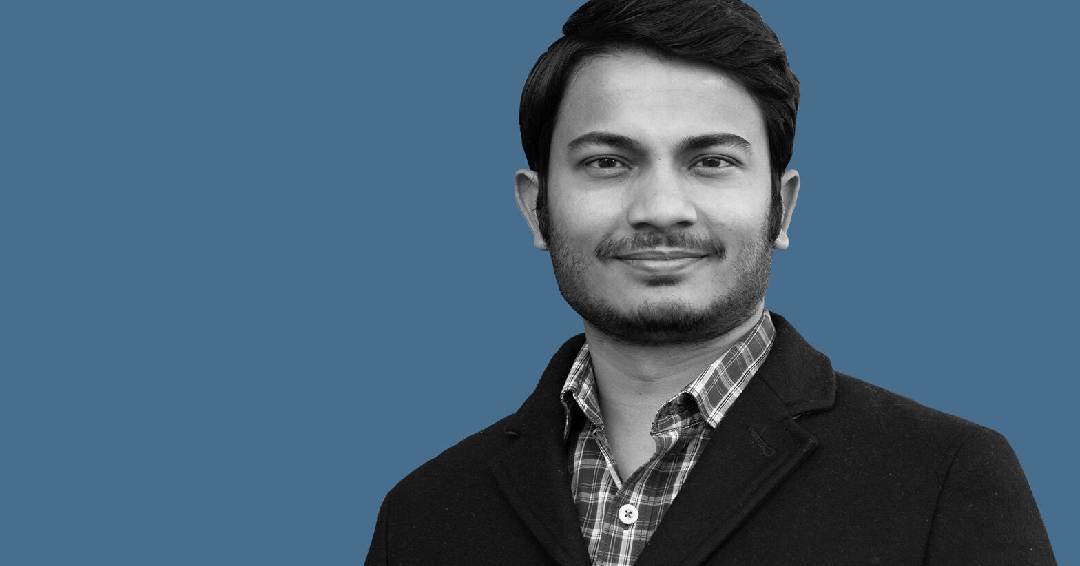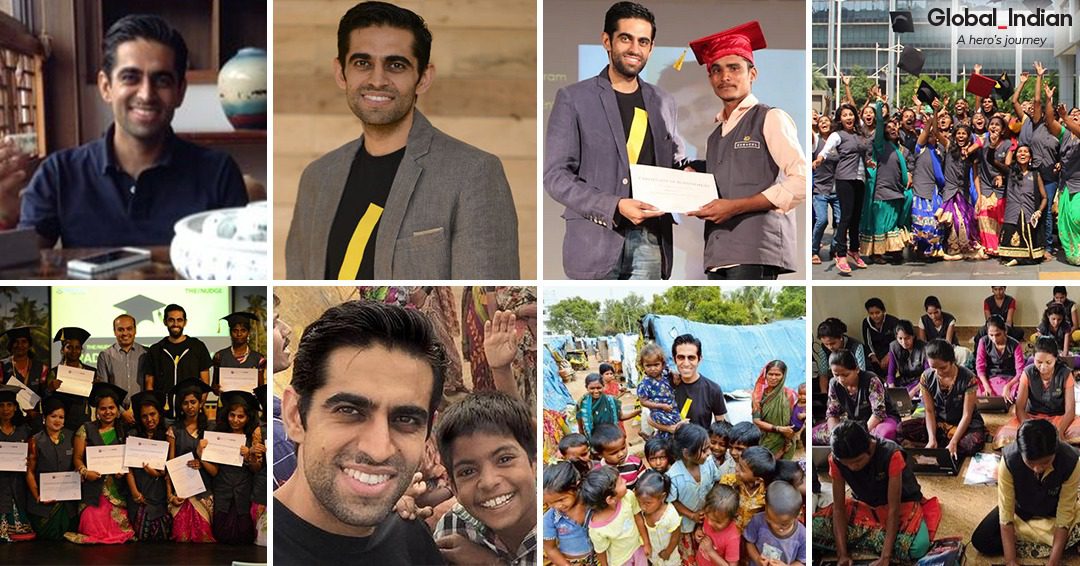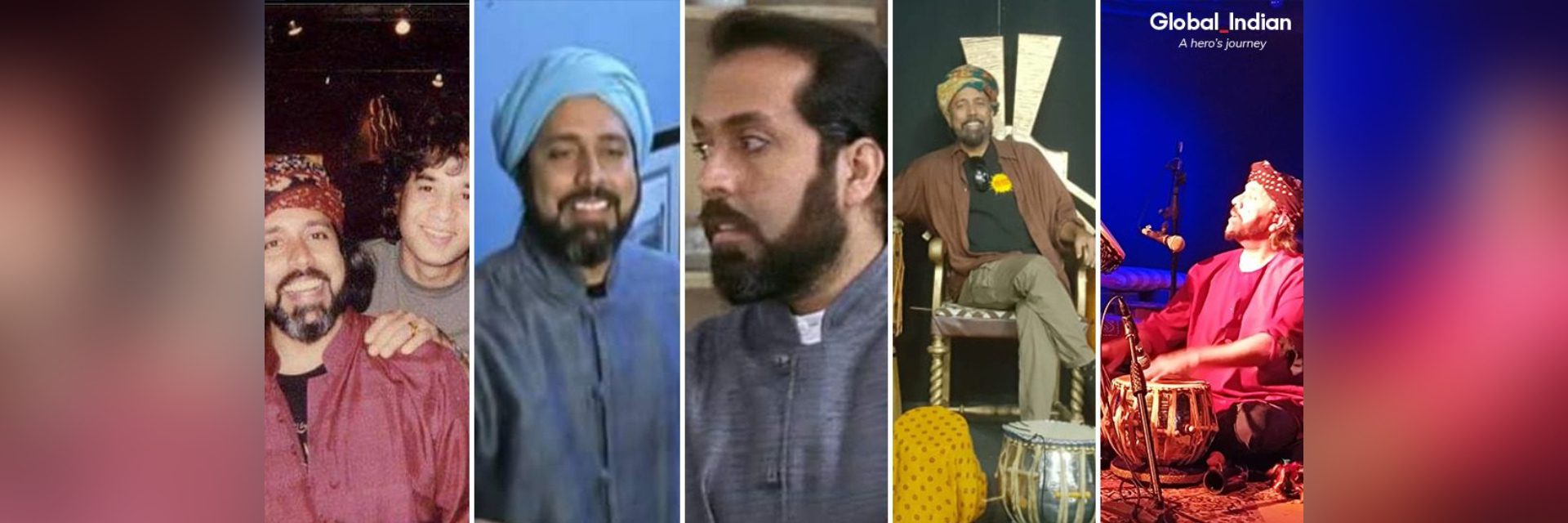(September 23, 2021) “If you don’t know your history, you are destined to repeat it.” To revere history and make sense of it is this archival missionary’s attempt to make humans learn from the past. He has taken on the gargantuan task of documenting migration and pandemics. A hunger to nurture an archival temperament across India, IIM-A Economics Professor Chinmay Tumbe, an Indian author, wants to create a storehouse of knowledge that stands the vagaries of time and preserves human journeys. Teaching economics and researching is his other predilection. He dons these hats with equal grace, and has authored two books – one that took 10 years of PhD research at IIM-B – India Moving: A History of Migration (2018, Penguin Viking), and another that was finished in 10 months – Age Of Pandemics (1817-1920): How they shaped India and the World (2021). Fitting for these times.
Modiji going through files on a plane is cool and all but have you even seen The Shastris ??? #ShastriSwag #ReadABookLikeLalitaShastri pic.twitter.com/BDmfxcKswi
— Chinmay Tumbe (@ChinmayTumbe) September 23, 2021
Quest for knowledge
For the Mumbai boy who grew up marveling at his father Vasudev Tumbe’s professional State cricket career, sport might have been his first port of call but then he embarked on a quest to devour knowledge. Schooled at Rishi Valley School in Madanapalle, Chinmay thinks the wholesome curriculum at the boarding school nurtured the best in him. At Ruia College in Mumbai, the extracurricular nature of student life was heightened. He, incidentally, met his wife Divya Ravindranath there, who works in public health. If his father instilled a love of sports, his mother inspired a love for teaching as she taught blind students with a degree in special education, and worked at the Lotus Eye Hospital. The Tumbe home was an open house for students and the running joke was how Chinmay would always hold a slate in hand! Uncannily, he does so at IIM-A even today.
A Master’s from the London School of Economics, Chinmay, an Indian author, learnt more in those three years from the city of London and his potpourri of friends than he did from college. A doctorate at IIM-B on migration, with a Jean Monnet Postdoctoral Fellowship at the Migration Policy Centre, European University Institute in Florence gave him the ammunition for his first book, and research material for his second. Suffice to say, the search for a calling was complete – penmanship and teaching, with sports for extra measure.
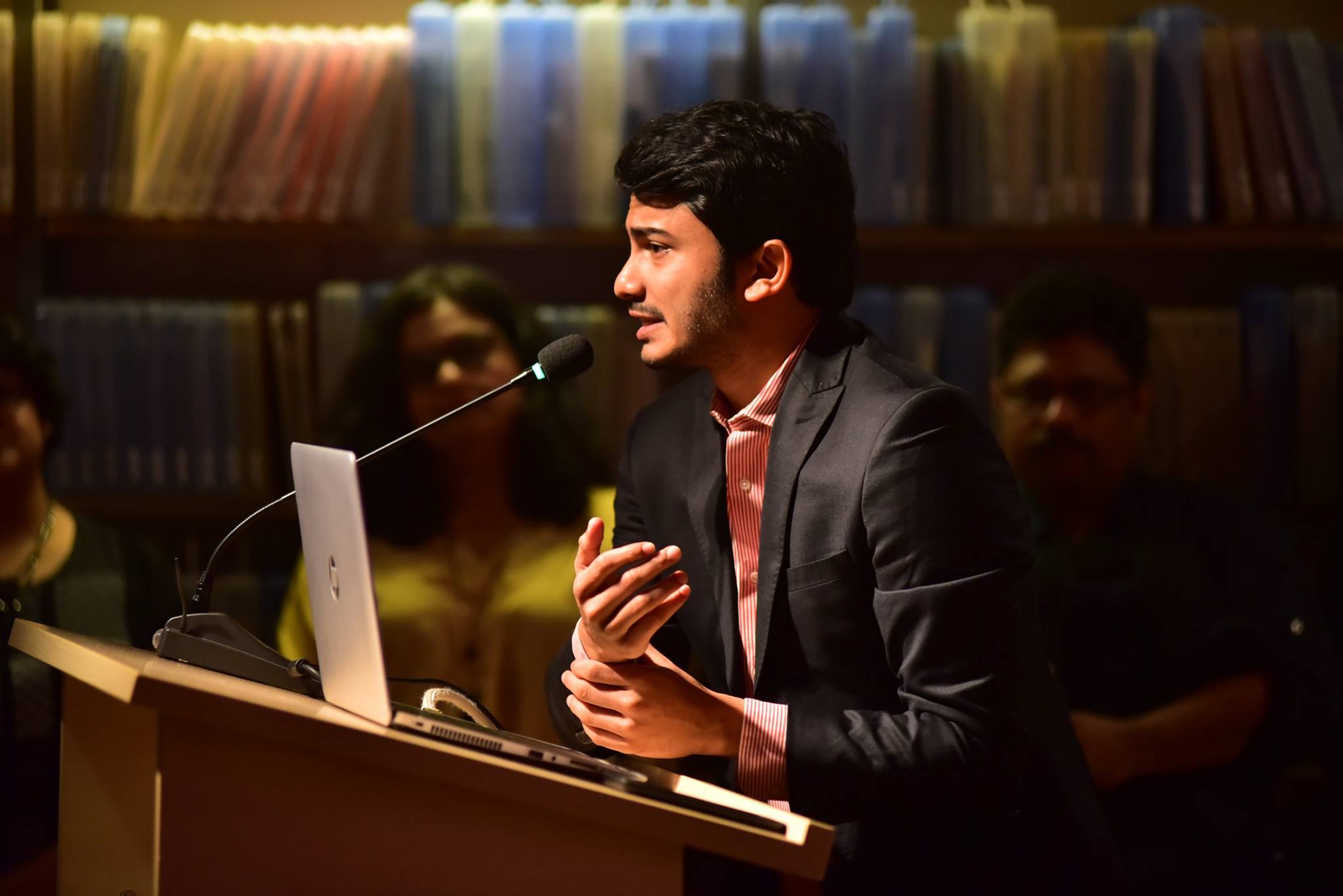
Chinmay Tumbe at a Godrej Talk
Tumbe’s career began in corporate fiefdom with the now-defunct Lehman Brothers, and after the crisis witnessed by the world, albeit a tough period for all concerned, he turned inwards – to what he most loved – reading, writing, and researching.
“I spent a year in Florence researching international migration. I spent about a year-and-a-half in the US as house husband as my wife was busy, and our son Siddhartha was small – I juggled research at US university libraries and child-rearing,” Chinmay, an Indian author, told Global Indian in an exclusive interview.
The author
Age of Pandemics was born in March 2020. It opens with a conversation with his son questioning him about past pandemics, when Tumbe, an Indian author, mentioned influenza, an excited Siddhartha ambled to bring a Tintin where the word appeared. Thus, Tumbe was prompted to share his vast knowledge of pandemics. “When Covid struck, I thought my research in my first book on migration and how epidemics often lead to migration was a good start. The bizarre narrative going on – India had never had a pandemic, all pandemics started in China, and Indians had natural immunity bothered me, and I set about debunking such myths,” says Tumbe, adding, “The things we got wrong in the migration (2020) and mortality (2021) Covid-19 crisis were completely foreseeable – In British times too, special trains were arranged. Unfortunately, what we did was to shut them down – that was wrong, and two months of complete chaos ensued. We did start special trains later but were two months too late. The brutal second wave followed, and we needed to be on alert but lowered our guards.”
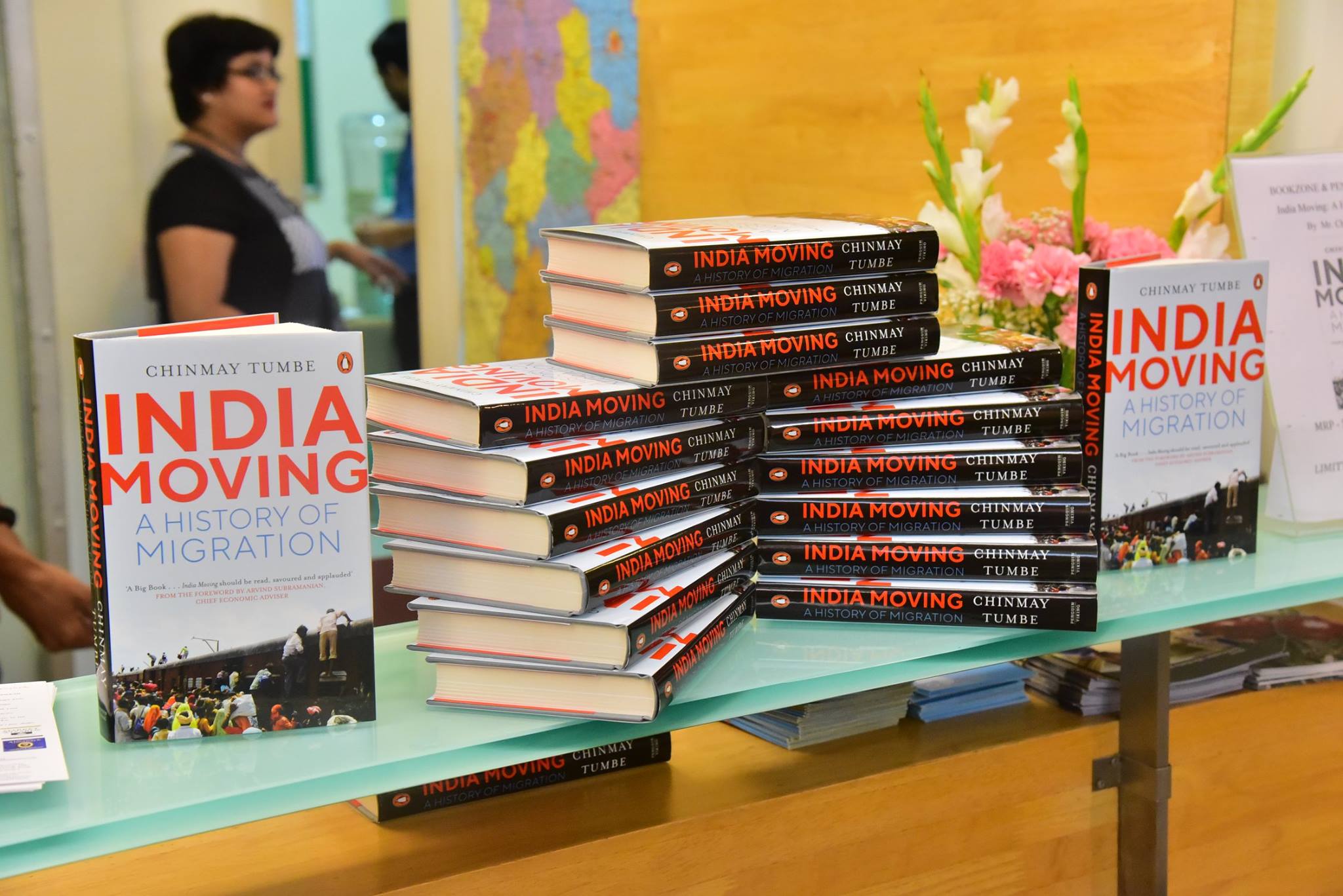
Chinmay Tumbe’s first book
Learning to live with the virus, with vaccinations and people recovering from Covid – will enhance natural immunity, and Tumbe, an Indian author, is optimistic that the third wave will be mild unless a new strain breaks out, but voices serious concern about Covid-19 data. “What we do need is better data. I think we are still lying. We have this dashboard of reported cases and reported deaths – we should be doing much more especially since we had a second wave that saw numbers like nothing even though many more people were dying,” says Tumbe, who is now in talks with public policy analysts, and is on the Lancet Covid 19 Task Force to get better data, and thereby accountability.
The teacher in him
A life of learning, his first stint as a teacher began at the Tata Institute of Social Sciences, Hyderabad (2014-2016), he still smiles at the memory of have taught urban economics at the lake or in the Golconda Fort. Of course, every new class comes with an element of nervousness especially for this 36-year-old professor and Indian author, but he has since honed that spirit which reflects in his fun and interactive classes. Being young is both an asset and a liability, and he concedes that it takes time to establish credibility. When not professoring, he can be seen playing football with his students, who much to their chagrin, later realize that the fellow footballer they’d been abusing was actually their professor.
Back to archives, Tumbe admits, “I call myself an archive missionary, and aspire to get institutions to set up their own archives. It is important to document contemporary history, and open up archival communication to the public. Communicating history and legacy to the wider stakeholders is key. New archives have been set up in India – the Bajajs and Tatas in Mumbai, Wipro’s in Bangalore have done a great job, a wonderful family archive of the Patni family who were the erstwhile Diwans of Bhavnagar district in Gujarat. I am so heavily entrenched in archives that I helped start the IIM-A archive which it did not have till 2019,” he reveals.
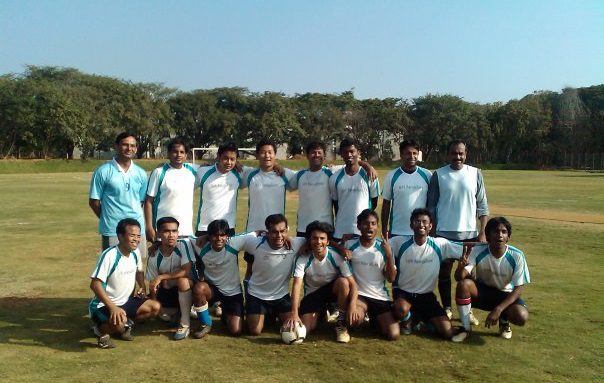
Chinmay Tumbe after a football match
The need to archive
“Indians are poor at recording our own history. Family records of business families were being thrown out till I intervened and begged them to encourage a culture of archiving,” he says, recalling how spellbound he was to find tomes of documents on IIM-A at his visit to Harvard Business School. He recently wrote a feature for 52.in on Dr Kamla Chaudhry who was the founding member of IIM-A but had been completely forgotten. “At IIM-A, there is a small movement now. I would say there are about 20 business archives in India, but potentially there is a market for thousands more. The Tatas have done a great job, the Godrejs too, but the Ambanis and Mahindras have yet to.”
The need for changes in public policy weigh him down – especially increasing the spend on public health and seeing health included in election manifestos. “We need to focus on the scientific temper and investment to be able to make breakthroughs. Karnataka and Kerala are good models with transparency, data and a large health budget. Gujarat (where I live) is fantastic for infrastructure – but does poorly on health parameters. Maybe Gujarat needs to learn about health, and teach about infrastructure,” he mulls.
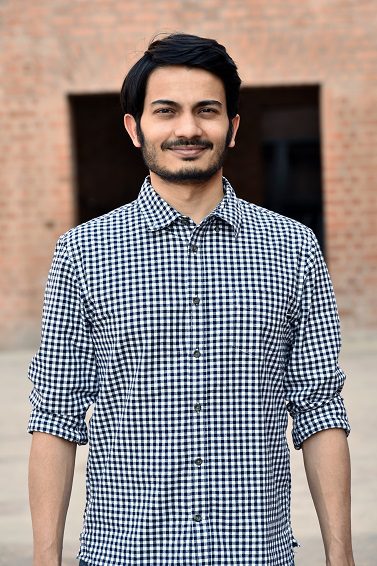
Chinmay Tumbe
Tumbe’s research as the Jean Monet fellow unearthed some interesting data – Outside of the UK, Italy hosts the most Indians, and northern Italy hosts 200,000 Indians, mostly Punjabis, who work in the dairy sector. He also chanced upon a famous bridge in Florence – the Ponte all’Indiano (bridge to India). On the side of the bridge was the bust of the Maharaja of Kolhapur. “The young king died in the 1880s on his way back from the UK, and was cremated at night. In his honor, they installed a bust – it’s remarkable,” says Chinmay, an Indian author, who felt an immediate kinship as a fellow Maharashtrian when the maharaja gazed down at him on a lone Florence bridge.
A tale of migration
India Moving was complete serendipity, and he is thrilled at the emails he gets thanking him. “A famous myth is that India as a relatively poor country, has more people leaving India but actually for nearly 30 years (1970s to 2000s) India had more immigrants and migrants which is counter intuitive (from Nepal and Bangladesh or going to the Gulf) though that is no longer the case today.
One of the key aspects of my book is to point out how old many of the migration corridors are – some 150-years-old – the Udupi district migration has been going on for over 100 years. That is also why I wrote the book,” he adds.
Sports might have begun with cricket, but turned to rifle shooting as sports secretary at Ruia College, football for IIM-B, and further with badminton and tennis too.
Interestingly, the Santa Cruz-er is a single child, so is his wife Divya, and they have a single child in Siddhartha. “I think my mother’s career influenced my choice of vocation. For the past eight years, my parents were based in South Korea as my father was working at Mahindras’ Ssangyong Motor Co Ltd as CFO. My mother speaks eight to 10 languages, even Korean, which was a blessing on our visit to Korea. My grandfather was a mathematician so there is an academic connection on one side, sports on the other,” explains Chinmay.
A family of avid readers, life on a university campus is uplifting, and his wife works at the Indian Institute of Human Settlements in Bangalore shuttles. The Tumbes are the only family on campus that have had a no-TV and no-car policy for a decade – with a garage space stacked with three bicycles. “We take an uber when required, we are like the millennials who don’t buy cars (though not technically millennials). As there is no TV, we tend to do a lot of reading.”
Travelling is high on agenda, across India, with Hampi and Indonesia’s Flores Islands as their favorites, and Florence. Or any other destination where work, research and travel open up new horizons, research and constant learning.
